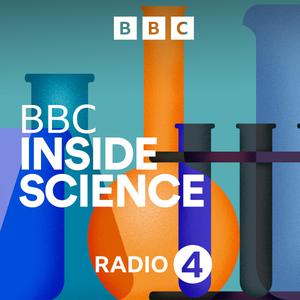
BBC Inside Science
BBC Radio 4
A weekly programme that illuminates the mysteries and challenges the controversies behind the science that's changing our world.
- 28 minutes 10 secondsInside Your Microbiome
Microbiomes are a multi-million-pound industry. Every week, many people send off poop samples to be examined so we can learn about our own ecosystems of bacteria, virus and fungi that live in our guts, with a view to improving health. But how accurate are these tests? Microbiologist Prof Jacques Ravel is calling for better controls in what is currently an unregulated industry. He joins us along with Prof Tim Spector, scientific co-founder of personalised nutrition app ZOE, to discuss the areas of concern, and potential benefits, of this direct-to-consumer model.
Nobel prize-winning psychologist Daniel Kahneman has died at the age of 90. Widely acknowledged as one of the world's most influential psychologists, his many years of study centred on how and why we make the decisions we do. In 2011, his book Thinking, Fast and Slow, which summarizes much of his research, was published and became a best seller. We’re joined by presenter and author Claudia Hammond to unpick his legacy.
The price of lab monkeys has plummeted. Used for drug development and testing, their value skyrocketed during the vaccine development period of the pandemic. But when the boom for vaccines died, the demand for (and value of) these monkeys plunged. Journalist Eleanor Olcott provides the full picture.
Are there alternatives to animal testing? Marnie visits a lab in Cambridge to find out about neural organoids, cellular clumps grown from stem cells made to replicate the brain. Developmental biologist Prof Madeline Lancaster shows her around and Dr Sarah Chan from the University of Edinburgh digs into the ethics of this cutting-edge branch of science.
Presenter: Marnie Chesterton Producers: Florian Bohr, Hannah Robins, Louise Orchard and Imaan Moin Editor: Martin Smith Production Co-ordinator: Jana Bennett-Holesworth
BBC Inside Science is produced in collaboration with the Open University.
25 April 2024, 4:00 pm - 36 minutes 14 secondsOur Accidental Universe
Professor and presenter, Chris Lintott, talks about his new book Our Accidental Universe; a tour of chance encounters and human error in pursuit of asteroids, pulsars, radio waves, new stars and alien life. Even with incredible technological developments, the major astronomical events of the past century are largely down to plain ol’ good luck; discovered not, as you might assume, by careful experiment, but as surprises when we have been looking for something else entirely. For instance, the most promising habitat for life beyond Earth turns out to be Saturn's tiny moon Enceladus, whose oceans were revealed when NASA's Cassini probe did a drive-by and, we get the most from the Hubble Space Telescope by pointing it at absolutely nothing!
A new company has launched which aims to mine Helium-3 on the moon to sell on Earth. This rare isotope is used for supercooling quantum computers and some scientists dream of using it in nuclear fusion as a new source of renewable energy. But is this ambition realistic and, if so, could it be within reach anytime soon? Planetary scientist Sara Russell of the Natural History Museum explains all.
There are many moons in our solar systems, but one of the strangest is Titan; the largest moon of the Saturn system. It gets colder than 100 degrees Celsius and has a thick atmosphere that creates weather. But its biggest mystery is the enormous, coffee-coloured dunes that cover a large part of its surface. Where did they come from? Planetary scientist Bill Bottke has a cunning theory.
In our universe, some stars are twins. They originate from the same molecular clouds and should be identical, but some pairs are not as similar as you’d expect. Marnie speaks to astrophysicist Yuan-Sen Ting about his new paper which illuminates how this difference might occur. His theory is that one of the stars, perhaps the evil twin, has been busy eating up vulnerable planets... Presenter: Marnie Chesterton Producers: Louise Orchard, Florian Bohr and Imaan Moin Editor: Martin Smith Production Co-ordinator: Jana Bennett-Holesworth
BBC Inside Science is produced in collaboration with the Open University.
18 April 2024, 4:00 pm - 28 minutes 14 secondsWorld’s oldest forest fossils
The world’s oldest fossilised forest was uncovered in Somerset last week. We head to palaeobotanist, Dr Christopher Berry’s, lab at Cardiff University to learn about these cladoxylopsids. They lived 390 million years ago and although they are not the ancestors of today’s trees, they reveal some extraordinary evolutionary secrets.
Also, Marnie speaks to Dr Chris Thorogood of the University of Oxford Botanic Gardens about his new book Pathless Forest: The Quest to Save the World’s Largest Flowers. Called “Rafflesia” plants and found in the remotest parts of South East Asia, their flowers burst from the rain forest floor the size of pumpkins and are critically endangered. Chris talks of his world of extreme fieldwork and hair-raising expeditions, braving leeches, lizards and lethal forest swamps, to discover the rarest of rare blooms.
Plus, the Wildlife Trust’s Making Friends with Molluscs campaign starts today, and I’m sure many gardeners will declare this an impossible task! We visit some allotments in Bristol to find out how people are managing slug and snail populations. And chat to Brian Eversham from the Trust of Bedfordshire, Cambridgeshire and Northamptonshire, who explains why these garden creatures should be considered our friends, not foes.
And finally, Dr Stewart Husband from last week’s programme returns to answer more of your burning questions about your tap water.
11 April 2024, 4:00 pm - 28 minutes 12 secondsHow pure is the water from your tap?
A recent study on how to get rid of microplastics in water sparked presenter Marnie Chesterton’s curiosity. When she turns on the tap in her kitchen each day, what comes out is drinkable, clean water. But where did it come from, and what’s in it? Dr Stewart Husband from Sheffield University answers this and more, including listener questions from around the UK. Is water sterile? Should I use a filter? And why does my water smell like chlorine?
Also, new research indicates that bumblebees can show each other how to solve puzzles too complex for them to learn on their own. Professor Lars Chittka put these clever insects to the test and found that they could learn through social interaction. How exactly did the experiment work, and what does this mean for our understanding of social insects? Reporter Hannah Fisher visits the bee lab at Queen Mary University in London.
And finally, more than 20 million years ago, our branch of the tree of life lost its tail. At that point in time, apes split from another animal group, monkeys. Now, geneticist Dr Bo Xia at the Broad Institute of MIT and Harvard thinks he may have found the specific mutation that took our tails. Marnie speaks with evolutionary biologist Dr Tom Stubbs from the Open University about why being tail-less could be beneficial. What would a hypothetical parallel universe look like where humans roam the earth, tails intact? And what would these tails look like?
Presenter: Marnie Chesterton Producers: Louise Orchard, Florian Bohr, Jonathan Blackwell, Imaan Moin Editor: Martin Smith Production Co-ordinator: Jana Bennett-Holesworth
BBC Inside Science is produced in collaboration with the Open University.
4 April 2024, 4:00 pm - 33 minutes 14 secondsDimming the Sun
Switzerland has submitted a proposal to create a United Nations expert group on solar geoengineering to inform governments and stakeholders. The idea was discussed at the UN Environment Assembly in Nairobi, Kenya, this week. Professor Aarti Gupta shares how, after tense negotiations, the different member states could not agree, and the proposal was withdrawn. Why is solar geoengineering a controversial issue? How would dimming the sun even work? And should we consider it a genuine option in our fight against climate change? Dr Pete Irvine and Professor Joanna Haigh join presenter Marnie Chesterton in the studio to discuss.
Animal welfare charities have been celebrating a ban on donkey skin trade, agreed to this month by 55 African countries. This will make it illegal to slaughter donkeys for their skin across the continent, where around two thirds of the world’s 53 million donkeys live. Victoria Gill tells Marnie that the demand for the animals' skins is fuelled by the popularity of an ancient Chinese medicine called Ejiao, believed to have health-enhancing and youth-preserving properties and traditionally made from donkey hides.
Lastly, Dr Jess Wade, physicist and science communicator at Imperial College London, discusses Breaking Through: My Life in Science. It’s the memoir of Nobel Prize-winning biochemist Dr Katalin Karikó, whose passion and dedication to mRNA research led to the development of the life-changing COVID mRNA vaccines.
Presenter: Marnie Chesterton Producers: Florian Bohr, Louise Orchard Assistant Producer: Imaan Moin Editor: Martin Smith Production Co-ordinator: Jana Bennett-Holesworth
BBC Inside Science is produced in collaboration with the Open University.
28 March 2024, 5:00 pm - 28 minutes 10 secondsLaboratory-Grown Meat
Professor Ben Garrod guest presents.
As a new 'meaty rice' is created and Fortnum & Mason launch a scotch egg made with cultivated meat that they hope to have on sale as early as next year, we investigate the world of laboratory-grown meat.
Mark Post made the first ever synthetic meat in 2012 to the tune of £200,000. He tells us how these lab-grown meats are made and how, he thinks, they could play an important role in reducing greenhouse gas emissions and feeding a growing population. Jenny Kleeman, author of Sex, Robots and Vegan Meat, is more sceptical, citing concerns over food security and if the public really want to eat this stuff.
A stingray called Charlotte has become pregnant, despite there being no other stingrays in her tank at the Aquarium & Shark Lab in North Carolina. Marine biologist Dr Helen Scales considers how this may have happened.
And cosmic minerologist Sara Russell from the Natural History Museum tells us how astronomers tracked and found a particularly unusual asteroid entering Earth’s atmosphere and what we might learn from it.
Presenter: Professor Ben Garrod Producers: Hannah Robins, Florian Bohr, Alice Lipscombe-Southwell and Jonathan Blackwell Editor: Martin Smith Production Co-ordinator: Jana Bennett-Holesworth
BBC Inside Science is produced in collaboration with the Open University.
21 March 2024, 5:00 pm - 28 minutes 1 secondThe Gulf Stream’s tipping point
The Gulf Stream, also known as the Atlantic Meridional Overturning Circulation (AMOC), is essential to stable global climate, and the reason we have moderate temperatures in Northern Europe. Now, a new modelling study suggests that this circulation could, at some point, be at a tipping point and collapse. We hear from one of the minds behind the model, post-doctoral researcher René van Westen from Utrecht University. But how likely is it that this will actually happen in the real world? Presenter Victoria Gill speaks to Jonathan Bamber who cautions that a gulf stream collapse is not imminent, and that it may just weaken slowly over time. Every summer in the Hudson Bay, on the Eastern side of Arctic Canada, the sea ice melts and the region’s polar bears head inland. But that ice-free season is getting longer, depriving the bears of that frozen platform that they use to pounce on their favourite prey – seals. So what do the bears do all summer? Research Wildlife Biologist Karyn Rode shares how she and her colleagues put a collar with video cameras on 20 polar bears, and what it revealed about their lives.
Is CERN finally going to get a gigantic new particle accelerator? Almost exactly one decade ago, Roland Pease reported from Switzerland about the very first meeting about the successor of the Large Hadron Collider which was used to discover the Higgs Boson. Now there’s an update to the story. Roland is back to tell Vic how far along CERN is with their plans, and how much more time and money it will take to build the Future Circular Collider.
Lovers of certain famous, creamy French cheeses could be in for a bit of a shock. Camembert and Brie are facing extinction as we know them! The Centre National de la Recherche Scientifique (CNRS) in Paris has stated that, over the last 100 years, the food and farming industry has placed too much pressure on the production of these types of cheeses. Now, the fungus traditionally used to grow the famous, fluffy white rinds has been cloned to a point where the lack of diversity in its genetic makeup means it can no longer be reproduced. Turophiles must learn to appreciate more diversity of tastes, colours and textures to protect the cheeses’ future.
Presenter: Victoria Gill Producers: Florian Bohr, Louise Orchard, Alice Lipscombe-Southwell Editor: Martin Smith Production Co-ordinator: Jana Bennett-Holesworth
BBC Inside Science is produced in collaboration with the Open University.
14 March 2024, 5:00 pm - 28 minutes 16 secondsAncient Roman writings revealed
As part of the Vesuvius Challenge, computer scientists have used machine learning to successfully reveal 2,000 characters from the Herculaneum scrolls. These artefacts were charred to a crisp following the eruption of Vesuvius in 79 AD. Papyrologist Federica Nicolardi has been translating the writings, and tells us what exactly has been deciphered.
Following this week’s launch of NASA’s PACE satellite, NASA scientist Dr Susanne Craig tells us how the mission will be giving our planet a health check.
Bird flu is still an issue. This month, scientists have reported that hundreds of penguin chicks have died from the virus in the Falklands. Meanwhile, in Argentina, avian flu has killed huge numbers of elephant seal pups. Professor Wendy Barclay, a virologist from Imperial College London, tells us more about the virus and how it can jump between species.
Sunday 11th February is International Day of Women and Girls in Science. Physicist Dr Jess Wade, who has written hundreds of Wikipedia biographies of women and underrepresented scientists, reveals one of her favourite scientists that people haven’t heard of.
Presenter: Victoria Gill Producers: Alice Lipscombe-Southwell, Florian Bohr, Louise Orchard Assistant Producer: Jonathan Blackwell Researcher: Imaan Moin Editor: Martin Smith Production Co-ordinator: Jana Bennett-Holesworth
BBC Inside Science is produced in collaboration with the Open University.
7 March 2024, 5:00 pm - 27 minutes 12 secondsWhen brains and computers meet
Are cyborgs now reality? Elon Musk certainly thinks so. His company, Neuralink, has successfully implanted one of its wireless brain chips in a human. Although billed as a breakthrough, they’re not the first to do it. In fact, similar devices have already been implanted, all with the aim of connecting our brains to computers with the aim of tackling complex neurological conditions. Joining Inside Science is neuroscientist and author, Dean Burnett. In this episode, Dean helps to break down the technology behind the brain-computer interface and digs into the ethical implications.
Plus, game changing smart technology gets a run out as Rugby Union’s Six Nations Championship kicks-off. This year, all players will be wearing “Smart Mouth Guards.” These are intelligent gum shields containing miniature gyroscopes, accelerometers and Bluetooth, which provide - with incredible accuracy - a measure of the magnitude and frequency of forces experienced by players. An athlete making their international debut in this competition could have their entire collision history mapped from now until retirement, providing invaluable information for training and treatments. Crucial not only for elite squads, but ultimately for community and schools rugby where the technology will eventually land, leading to a safer game.
And finally, it turns out that we can actually understand chickens even if we’ve never met them before! After assessing a group of around 200 volunteers, a team at the University of Queensland has discovered that humans with no experience of chickens at all, could understand the birds’ calls of satisfaction, or frustration. The research has serious implications for what’s known as precision farming, an area of livestock farming with little, to no, human interaction that requires automated systems of welfare detection using sound recognition.
Presenter: Victoria Gill Producers: Louise Orchard, Florian Bohr, Alice Lipscombe-Southwell Editor: Martin Smith Production Co-ordinator: Jana Bennett-Holesworth
BBC Inside Science is produced in collaboration with the Open University.
29 February 2024, 5:00 pm - 28 minutes 12 secondsHydrogen and the race to net zero
Hydrogen has long been touted as a potential wonder gas that could play a significant role in our race to net zero. Now, planning permission has been granted for the UK’s largest production hub of its kind, and one of the most advanced in the world. Located in Cheshire, it bills itself as a vital piece of Northwest England’s mission to help manufacturers in the region decarbonise their processes and support UK jobs. We speak to chemical engineer and the plant’s site manager, Richard Holden, and we also catch up with Mark Miodownik, Professor of Materials and Society at University College London, about hydrogen and our future energy economy.
Almost 25 years ago, Dr Marc Lammers stumbled across a mystery. The humpback whale singing he was recording via an underwater microphone near the shore was quieter during the day than at night. But he wasn’t able to answer why. Many years later, a PhD student, Anke Kuegler, joined his research team and took on the task of uncovering what was really going on. Using multiple ways of listening to and tracking the whales, she found out that the singing humpbacks were moving off-shore during the day, and closer to shore at night. Part of the mystery was solved, but it raised an even bigger question: what is driving this behaviour?
Plus, a recent study has shown that terrestrial hermit crabs around the world are using non-organic materials, like plastic bottle caps, as their homes. Professor Marta Szulkin and her team at the University of Warsaw looked through social media photographs and videos (known as iEcology, or Internet Ecology) to find evidence for this new behaviour. Marta has theories about why the crabs are doing this, but it will take many years of research to uncover the long-term effects on hermit crab populations and their evolutionary trajectory. And, resident materials expert, Mark Miodownik, chats to Viv about what we can, and cannot, solve about the global plastic emergency.
Presenter: Victoria Gill Producers: Florian Bohr, Louise Orchard Editor: Martin Smith Production Co-ordinator: Jana Bennett-Holesworth
BBC Inside Science is produced in collaboration with the Open University.
22 February 2024, 5:00 pm - 27 minutes 53 secondsA New Volcanic Era?
As lava consumes homes on the Reykjavik Peninsula in Iceland, evacuated communities have been witnessing eruptions shifting and intensifying. We take a look at the latest science that’s helping teams on the ground accurately predict where the danger is coming from, helping people to stay safe. Our go-to volcanologist, Dr Evgenia Ilyinskaya, and her colleague, Professor Andrew Hooper, from the University of Leeds tell presenter Victoria about these new technological advancements, and ask the crucial question: are we entering a new millennium of volcanic activity in Iceland?
When looking at clear ocean water, you might assume that, aside from fish and some algae, there isn’t much living in it. But Prof Carlos Duarte knows it is full of life. In fact, his new study shows just how many different microbes – bacteria, viruses & fungi – live in all parts of our ocean. He and his team at King Abdullah University of Science and Technology in Saudi Arabia have created the largest ocean genome catalogue to date. Prof Mark Blaxter from the Wellcome Sanger Institute joins us to discuss this new study, the benefits of hypothesis-free science, and why he believes cataloguing the code of life of all the species on earth is an important endeavour.
And, lastly, an old dinosaur fossil in New Mexico has been re-examined. What was believed to be of the infamous Tyrannosaurus rex may have been a different species all along. But not all palaeontologists agree. How do scientists even tell a dinosaur species from a fossil? Prof Stephen Brusatte tells Vic that it’s all about comparing bones.
Presenter: Victoria Gill Producers: Florian Bohr, Louise Orchard, Hannah Robbins Editor: Martin Smith Production Co-ordinator: Jana Bennett-Holesworth
BBC Inside Science is produced in collaboration with the Open University.
15 February 2024, 5:00 pm - More Episodes? Get the App
Your feedback is valuable to us. Should you encounter any bugs, glitches, lack of functionality or other problems, please email us on [email protected] or join Moon.FM Telegram Group where you can talk directly to the dev team who are happy to answer any queries.
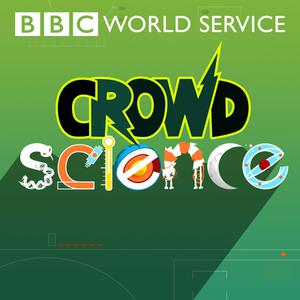 CrowdScience
CrowdScience
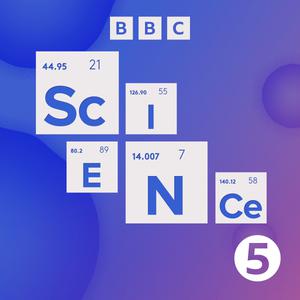 5 Live Science Podcast
5 Live Science Podcast
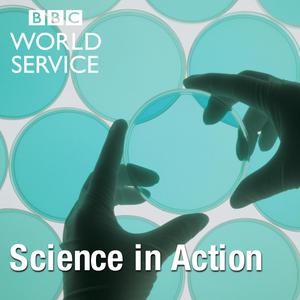 Science In Action
Science In Action
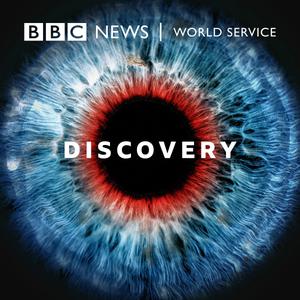 Discovery
Discovery
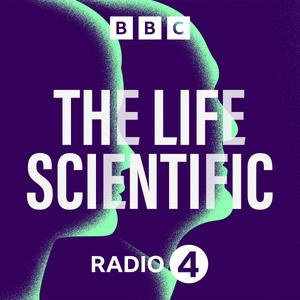 The Life Scientific
The Life Scientific
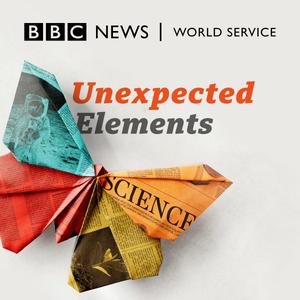 Unexpected Elements
Unexpected Elements